If you want to stop hair fall without worrying about it returning or getting worse, you have come to the right place. However, before we begin, it is important to note that shedding 50-100 hair strands per day is normal. Hair falling at a higher rate than this signifies an underlying health issue. Food habits, environmental stress, lifestyle, and pollution are a few reasons behind hair fall. In this article, we have listed 20 tips to stop hair fall. Keep scrolling!
In This Article
20 Ways To Reduce Hair Fall At Home For Men And Women
Hair Care
Taking care of your scalp and hair is important to reduce hair fall. Here’s what you can do at home every week or once a month to improve hair strength and vitality.
1. Hair Oil Scalp Massage
Massaging your hair with coconut oil, argan oil, peppermint oil, and castor oil can help reduce hair fall and stimulate hair growth (1). You can also heat the oil for hot oil treatment. It enters the deepest layers of your scalp, revives the hair follicles, and strengthens the hair from the roots.
Gently massage your scalp in a circular motion for 20 minutes. Do this at least twice a week.
2. Homemade Hair Masks
After a scalp massage, you can apply a homemade hair mask to nourish, soothe, and rejuvenate your hair roots. You can do this once or twice a week, depending on your convenience. Use the following DIY hair masks:
- Green Tea And Egg Hair Mask: Green tea contains EGCG (epigallocatechin-3-gallate) that can help stimulate hair growth (2). Eggs have been a popular hair care ingredient as they provide the hair with the essential nutrients it needs to grow healthily. Add 2 tablespoons of freshly brewed green tea to 1-2 egg yolks. Mix well. Apply the mask from root to tip for strong, thick, healthy, and shiny hair.
- Onion Hair Mask: Onion contains useful hair regrowth nutrients like folic acid, vitamins B, C, and E, phosphorus, zinc, potassium, magnesium, and carotene. Onion juice can aid hair regrowth in people experiencing patchy hair loss (3). Prepare an onion mask by grating a whole onion and pressing out the juice. Use cotton to dab the onion juice on the scalp. Leave it for 20-30 minutes before washing it off.
- Aloe Vera Hair Mask: Aloe vera has hydrating properties (4). It nourishes the roots and softens the hair shaft. This makes your hair smoother and less prone to breakage. Mix 2 tablespoons of mashed aloe vera gel with 2 tablespoons of coconut oil. Apply it to the scalp and leave it for 20 minutes before washing off.
3. Use A Gentle Shampoo
After an oil massage or hair mask, wash your hair with a gentle herbal or a medicated shampoo. It will help reduce dandruff and excess oil.
Massage your scalp in a circular motion with your fingertips. Use a scrunching motion to shampoo the hair strands; do not rub them. Also, shampoo your hair twice a week to wash off any excess dirt or build-up.
4. Apply A Conditioner
After shampoo, use a moisturizing and nourishing conditioner. Apply it only to the hair strands and not the scalp. Leave it on for 10 minutes before rinsing. Do this every time you wash your hair.
You can also use a deep conditioning homemade hair mask once every week. Mix honey and milk. Apply it to your hair and leave it on for 20 minutes. Wear a shower cap to protect your hair. Wash your hair with a mild shampoo and finish off with a conditioner.
5. Gently Dry With A Towel
After washing your hair, use a soft towel to wrap your hair and let the towel naturally soak the excess water. Avoid rubbing your hair shafts together to dry your hair.
Use a scrunching motion to gently dry your hair without damaging the roots or the shafts. If you are in a hurry, use a hair dryer at a moderate heat setting. However, avoid frequent use of blow dryers at all costs.
6. Use A Wooden Comb
After your hair is dry, use a wooden wide-toothed comb to gently detangle any tangles and prevent hair fall due to static electricity that is common in plastic combs. Also, avoid brushing wet hair as the hair roots are soft and delicate, and your hair can be easily pulled out. Comb from down-up if you have tangles.
7. Indulge In A Hair Spa At Home
If you want to maintain luscious and healthy hair, a hair spa works best. The good news is you can do it at home by following these easy steps:
Step 1: Shampoo your hair.
Step 2: Apply a deep conditioning hair mask.
Step 3: Apply steam to your hair. You can dip a towel in hot water, squeeze the excess water, and wrap the towel around your head. You can also use one of these good hair steamers.
Step 4: Wash off the conditioner. Towel dry.
Step 5: Apply a light oil or serum.
A hair spa at home will make your hair and scalp healthier, the roots stronger, and improve blood circulation. It reduces hair fall and stimulates hair growth by nourishing the hair follicles and removing impurities. Your hair will feel softer and look shinier.
8. Trim Your Hair
Dry, brittle, and split ends make the hair more prone to breakage. Trim your hair at home or a salon every 3-4 months to keep it healthy. Shampoo your hair before trimming. Use a conditioner and wash your hair. Finish off by applying a light oil or a hair serum.
Subscribe
9. Avoid Too Much Styling
Avoid over-processing and styling. Repeated heat styling and using harsh chemicals to straighten, perm, color, and bleach your hair can make it dry and brittle and weaken the follicles.
If you want to curl your hair, use rollers or follow DIY methods on YouTube. You can also use herbal colors to cover grays. Henna and beetroot are also good for coloring hair naturally.
Nutrition
When it comes to reducing hair fall, your diet plays a crucial role. Here’s what to consume to improve your scalp and hair health.
10. Omega-3
Omega-3 helps reduce low-grade inflammation and stress (5). This, in turn, helps reduce hair fall. The best sources of omega-3 are fatty fish and fish oil. Consume fish like mackerel, tuna, and sardine. You may also consult a doctor and take omega-3 supplements.
11. Protein
Your hair is made of keratin, a type of protein. Hence, you must consume a diet rich in protein to protect and strengthen your hair (6). Consume lentils, soybean, beans, seeds, nuts, eggs, fish, and skinless chicken breast.
12. Vitamin C
Vitamin C is a strong antioxidant that helps scavenge the harmful free oxygen radicals. Hair fall triggered due to the high accumulation of toxins that can be reduced by consuming vitamin C-rich foods (7). Consume Indian gooseberry (amla), oranges, sweet lime, lime, strawberries to improve hair strength, shine, softness, and thickness.
13. Veggies
Vegetables like spinach, raw papaya, bottle gourd, carrot, ladies finger, sweet potato, squash, tomato, beans, and pumpkin are great sources of vitamins and minerals. They help nourish the follicles and make the hair strands stronger. Consume at least 3 different veggies per day in curries or salads.
14. Stay Hydrated To Improve Hair Health
Dehydration or not drinking enough water can lead to dry, frizzy, and lifeless hair that is prone to breakage and results in hair fall. Water also lubricates the hair follicles and improves the circulation of vitamins and minerals essential for hair growth. That is why drinking at least 2-3 liters of water every day is important to prevent hair fall.
Lifestyle
Along with following a good hair care routine and a proper diet, tweaking your lifestyle can also help reduce hair fall. Here’s what you can do.
15. Keep Your Head Sweat-Free
Whether you exercise or sweat a lot in general, try to keep your scalp sweat-free. Sweating dehydrates the hair strands, leading to bacterial growth, fungal infections, blocked pores, and lactic acid accumulation. Take a shower every time you exercise and dry your hair with a clean towel. You can also use a blow dryer at a low heat setting to quickly dry your scalp.
16. Avoid Smoking
Cigarette smoke contains harmful free oxygen radicals. These toxins, if not expelled, can lead to a weak immune system. They also damage the hair follicles, leading to increased hair fall (8). Reduce smoking to prevent hair loss and help your hair grow thicker.
17. Reduce Alcohol Consumption
Alcohol causes dehydration. It also reduces the body’s ability to absorb essential vitamins and minerals that are good for hair growth and hair strengthening. Reduce your consumption of alcohol. You can drink one glass of wine twice a week. You may also drink chilled fruit juice with crushed ice and herbs, which will help rejuvenate and strengthen the hair follicles.
18. Yoga And Breathing Exercises
Yoga and other forms of exercise are good for fitness and strengthening the immune system. Yoga poses like Sirsasana (headstand) and Sasankasana help increase blood circulation to the scalp and may stimulate hair growth. You can also do breathing exercises like anulom vilom and kapalbhati to expel toxins from the body and boost hair health.
19. Destress Regularly
Stress is not good for your health and hair. Stress increases the levels of toxins in your body, which weakens the roots of your hair and makes it more prone to fungal infections. De-stress regularly by either practicing meditation and breathing exercises.
Do something that interests you – walking, dancing, painting, reading, writing, cooking, playing a sport, playing musical instruments, listening to music or podcasts, talking to friends, gardening, etc.
20. Sleep Well Every Night
Sleeping helps reboot your entire system. Getting 6-7 hours of sleep detoxes and rejuvenates your mind and body, reduces stress, and strengthens the immune system. Lack of adequate sleep can increase cortisol (stress hormone) levels, making the hair follicles weak and hence causing hair loss. If you have difficulty sleeping, read a book, or listen to soothing music. Switch off all electronic gadgets and lights before you go to bed.
These are the 20 effective ways to reduce hair fall and stimulate hair growth without burning a hole in your pocket. Take care of your hair regularly, and you will see a difference in its thickness and appearance. However, if the problem persists, the next step is to seek help from a licensed professional. Here’s a list of hair fall treatments that are available.
Hair Fall Treatments
- Laser Therapy
Low-Level Laser Therapy (LLLT) is growing in popularity as an effective hair growth treatment. It deals with hair loss or thinning hair by providing extra energy to the damaged cells in your scalp to resume normal functioning. This can help stimulate hair growth and reduce hair fall (9).
- Hair Transplantation
Hair transplantation is one of the restorative methods for hair. It is achieved by taking donor hair and placing it where hair loss occurs. You might experience temporary hair loss initially, but the donor hair eventually grows the same way it did on the donor site. It has very few complications (10).
- Medications
Certain medications can also help reduce hair fall. Talk to your doctor before using any of the ones mentioned below:
(a) Minoxidil (Rogaine) is an ingredient in over-the-counter medicated shampoos that helps reduce hair loss and stimulates fast hair growth (11). However, it might cause scalp irritation and unwanted hair growth on the sides of the face.
(b) Finasteride (Propecia) is prescribed by licensed physicians to men with hair fall issues (12). It slows down hair fall and may help in hair regrowth. However, as a side effect, it might diminish sexual drive. Pregnant women must avoid it.
If you want to reduce hair fall, you must laser attack the cause that is triggering it. Here’s a list of reasons you might be losing hair.
Causes Of Hair Fall
The causes of hair fall vary from person to person. Here are the causes of hair fall in men and women:
- Hereditary Factors: If your parents have a hair loss problem, it is likely that you will as well. Hereditary hair fall is called alopecia (13). While this is more evident in men, women, too, are likely to develop genetically inherited alopecia.
- Hormonal Changes: Hormonal changes in the body increase the sensitivity of hair follicles, weaken the hair roots, and cause hair fall. Menopause, PCOD, hypothyroidism, hyperthyroidism, excess testosterone, etc. may eventually cause hair loss in men and women (14), (15), (16).
- Pregnancy: Most pregnant women and new moms experience frequent dehydration, fatigue, and hormonal imbalance. This increases sensitivity in the hair follicles and creates unfavorable scalp conditions. All of these factors may lead to chronic hair fall.
- Physical And Mental Stress: Persistent illness, drastic and excessive weight loss, and extreme physical labor can cause the body to get dehydrated and exhausted. This can make the hair follicles undernourished and weak and may cause rapid hair loss.
- Scalp Infection: Fungal, bacterial, and viral infections like seborrheic dermatitis and psoriasis in the scalp can weaken the roots and damage hair follicles, thereby causing thinning, breakage, and hair fall.
- Alopecia Areata: Alopecia areata is an autoimmune disorder in which the immune system mistakes hair for a foreign contaminant and starts attacking the hair follicles, causing hair loss (17). A licensed doctor may prescribe different treatments for alopecia areata, like corticosteroid injections, anthralin ointment, topical corticosteroids, etc.
- Medication And Treatments: Certain medications may lead to hair fall as a side effect. Treatments like chemotherapy, steroids, and medications for typhoid, heart diseases, depression, etc. may cause extreme hair fall. Alopecia was found to be one of the common adverse effects of Voriconazole, an antifungal medicine (18).Other drugs that may cause hair loss are acne medicines containing retinoids, antibiotics and antifungal drugs, birth control pills, anti-clotting drugs, epilepsy drugs, high blood pressure drugs, anti-inflammatory drugs, weight loss drugs, hormone replacement therapy, Parkinson’s disease drugs, and thyroid medications (19), (20), (21).
- Thyroid Disorders: Thyroid disorders and anti-thyroid medication almost always lead to hair loss. The hair looks sparse, and the hair loss is evenly distributed all over the scalp. Successful treatment often leads to the hair growing back.
- Iron Deficiency, Anemia, And Blood Loss: Deficiency of red blood cells in the body, sudden loss of blood, and insufficient iron levels in the body cause not only fatigue, weakness, and headaches but also hair loss.
- Crash Diets And Malnutrition: Insufficient intake of nutrients and following an unhealthy and unbalanced diet can cause malnourishment in the body. This leads to dehydration of the scalp and hair and can trigger excessive hair fall.
- Over Supplementation: Over supplementation of a few nutrients, like vitamin A, vitamin E, and selenium, can cause hair loss, among other risks (6). Instead of taking vitamins in their concentrated form as supplements, consuming them from fruits and other organic foods is better.
- Styling: Heavy usage of hair products and hair accessories can lead to hair loss. Some hair products, like sodium lauryl sulfate shampoos and hair sprays, are known to contain chemicals that are not good for your hair and scalp. Hair accessories (like elastic bands) are known to pull on the hair.
Conclusion
Tweaking your diet and lifestyle and taking regular care of your scalp and hair can make your hair stronger. This, in turn, will reduce hair fall and stimulate hair growth. Follow the above-mentioned methods to see good results. If the condition persists or you are experiencing excessive hair fall, consult a doctor.
Infographic: 20 Tips, Methods, And Treatments To Stop Hair Fall Naturally
It is natural to shed a few hair strands in a day. However, excessive hair loss may be a sign of something more serious and may warrant intervention.
Think about what you have been exposing your hair to, what you have been eating, and if you have a medical condition that needs attention.
See the infographic below for tips on what to change from your hair care routine and what foods you should eat to prevent hair fall issues.

Illustration: StyleCraze Design Team
Oil massages, hair masks, shampooing, and conditioning help nourish the strands from the roots and help stop hair fall. Do not use too many styling products as some of them can be harsh on the strands and weaken them. Also, trimming your hair helps you get rid of split ends, so get it done once every 3-4 months. It is also important to choose the right products to maintain your hair. For example, using a wooden comb helps prevent static energy-induced hair fall that is common with plastic combs. More importantly, eat a lot of vegetables and get enough protein, omega-3 fatty acids, and vitamin C and make certain lifestyle changes to keep your locks strong and healthy.
Frequently Asked Questions
How can I stop hair fall after keratin treatment?
Use an onion mask and egg and green tea mask alternately twice a week to stop hair fall after a keratin treatment. If not, massage the scalp with hot coconut oil and fenugreek powder before shampooing. Also, use a conditioner and serum.
How to stop hair fall after permanent straightening?
Use a hair mask once every week, massage argan oil on the roots and tips, and drink adequate water. Use a green tea mask to detox the roots.
How to stop hair fall after pregnancy?
Consume green veggies, fruits, lentils, soybean, beans, and fatty fish. You can also use good hair care products from trusted brands.
How to stop hair fall after rebonding?
Use a deep conditioning hair mask every week to stop hair fall after rebonding.You can also use egg white as a hair mask. Leave it on for 30 minutes and wash off with a good shampoo. Follow up with a conditioner and serum.
How to stop hair fall after smoothening?
Consume a protein-rich diet and apply a mix of coconut oil and castor oil every two days before shampooing your hair to strengthen the roots. Apply an avocado mask once a week to nourish the hair shafts.
How can I stop hair fall due to PCOS?
PCOS patients mostly experience male-pattern baldness. You can use hair growth products in these areas. Also, avoid junk and processed foods. Consume green veggies and a high-protein diet. Exercise regularly and de-stress. Apply egg white and green tea mask or avocado mask every week.
How to stop hair fall due to stress?
Practice yoga asanas, meditation, and breathing exercises. You can also run or walk. Pick up a hobby to reduce stress and prevent hair loss.
How long will it take to stop excessive hair fall?
It can take anywhere between 3 months to a year, depending on the reason for your hair fall. You might need to see a doctor to prevent hair loss and undergo treatment.
How to stop hair fall in teenagers?
To stop hair fall in teenagers, consume green veggies, nuts, seeds, lentils, beans, fatty fish, and chicken breast. Use an egg white mask and nourish the hair with hot coconut oil before shampoo.
Which hairstyles are good for preventing hair fall?
Abraided ponytail is the best hairstyle to prevent hair fall and retain hair health. Avoid pulling the hair too much to prevent a receding hairline.
Does a hair spa reduce hair fall?
Yes, hair spa helps reduce hair fall to a great extent. Massaging helps improve blood circulation and provides the roots with nourishing nutrients. Steam locks in moisture and nourishment, which, in turn, help strengthen the roots.
Which oil to use to stop hair fall?
Use coconut oil with fenugreek seed powder or castor oil to stop hair fall.
Does cutting hair short reduce hair fall?
Chopping your hair might not reduce hair fall completely, but it can help you get rid of split ends and dry and damaged hair that cause more hair loss. Short hair is easy to maintain and dries quickly. This may lead to reduced hair fall.
What’s the best solution to reduce side hair fall?
You can use an onion hair mask or castor oil to reduce side hair fall or prevent male pattern balding. Consume a protein-rich diet and consult a licensed doctor for treatment.
How to comb the hair without causing hair fall?
Use a wooden wide-toothed comb. Start from the tips and go up to the roots to comb your hair without pulling out healthy hair.
21 sources
Articles on StyleCraze are backed by verified information from peer-reviewed and academic research papers, reputed organizations, research institutions, and medical associations to ensure accuracy and relevance. Check out our editorial policy for further details.
- Koyama, Taro et al. “Standardized Scalp Massage Results in Increased Hair Thickness by Inducing Stretching Forces to Dermal Papilla Cells in the Subcutaneous Tissue.” Eplasty 16 e8. 25 Jan. 2016
https://www.ncbi.nlm.nih.gov/pmc/articles/PMC4740347/ - Kwon, O S et al. “Human hair growth enhancement in vitro by green tea epigallocatechin-3-gallate (EGCG).” Phytomedicine : international journal of phytotherapy and phytopharmacology 14,7-8 (2007): 551-5.
https://pubmed.ncbi.nlm.nih.gov/17092697/ - Sharquie, Khalifa E, and Hala K Al-Obaidi. “Onion juice (Allium cepa L.), a new topical treatment for alopecia areata.” The Journal of dermatology 29,6 (2002): 343-6.
https://pubmed.ncbi.nlm.nih.gov/12126069/ - Surjushe, Amar et al. “Aloe vera: a short review.” Indian journal of dermatology 53,4 (2008): 163-6.
https://www.ncbi.nlm.nih.gov/pmc/articles/PMC2763764/ - Kiecolt-Glaser, Janice K et al. “Omega-3 supplementation lowers inflammation and anxiety in medical students: a randomized controlled trial.” Brain, behavior, and immunity 25,8 (2011): 1725-34.
https://www.ncbi.nlm.nih.gov/pmc/articles/PMC3191260/ - Guo, Emily L, and Rajani Katta. “Diet and hair loss: effects of nutrient deficiency and supplement use.” Dermatology practical & conceptual 7,1 1-10.
https://www.ncbi.nlm.nih.gov/pmc/articles/PMC5315033/ - Almohanna, Hind M et al. “The Role of Vitamins and Minerals in Hair Loss: A Review.” Dermatology and therapy 9,1 (2019): 51-70.
https://www.ncbi.nlm.nih.gov/pmc/articles/PMC6380979/ - Trüeb, Ralph M. “Association between smoking and hair loss: another opportunity for health education against smoking?.” Dermatology (Basel, Switzerland) 206,3 (2003): 189-91.
https://pubmed.ncbi.nlm.nih.gov/12673073/ - Suchonwanit, Poonkiat et al. “Low-level laser therapy for the treatment of androgenetic alopecia in Thai men and women: a 24-week, randomized, double-blind, sham device-controlled trial.” Lasers in medical science 34,6 (2019): 1107-1114.
https://pubmed.ncbi.nlm.nih.gov/30569416/ - Khanna, Manoj. “Hair transplantation surgery.” Indian journal of plastic surgery : official publication of the Association of Plastic Surgeons of India 41,Suppl (2008): S56-63.
https://www.ncbi.nlm.nih.gov/pmc/articles/PMC2825128/ - Suchonwanit, Poonkiat et al. “Minoxidil and its use in hair disorders: a review.” Drug design, development and therapy 13 2777-2786.
https://www.ncbi.nlm.nih.gov/pmc/articles/PMC6691938/ - McClellan, K J, and A Markham. “Finasteride: a review of its use in male pattern hair loss.” Drugs 57,1 (1999): 111-26.
https://pubmed.ncbi.nlm.nih.gov/9951956/ - Ho CH, Sood T, Zito PM. Androgenetic Alopecia. [Updated 2020 Aug 10]. In: StatPearls [Internet]. Treasure Island (FL): StatPearls Publishing; 2020 Jan.
https://www.ncbi.nlm.nih.gov/books/NBK430924/ - Kische, Hanna et al. “Sex Hormones and Hair Loss in Men From the General Population of Northeastern Germany.” JAMA dermatology 153,9 (2017): 935-937.
https://www.ncbi.nlm.nih.gov/pmc/articles/PMC5817427/ - Dinh, Quan Q, and Rodney Sinclair. “Female pattern hair loss: current treatment concepts.” Clinical interventions in aging 2,2 (2007): 189-99.
https://www.ncbi.nlm.nih.gov/pmc/articles/PMC2684510/ - Contreras-Jurado, Constanza et al. “Thyroid hormone signaling controls hair follicle stem cell function.” Molecular biology of the cell 26,7 (2015): 1263-72.
https://www.ncbi.nlm.nih.gov/pmc/articles/PMC4454174/ - Pratt, C Herbert et al. “Alopecia areata.” Nature reviews. Disease primers 3 17011.
https://www.ncbi.nlm.nih.gov/pmc/articles/PMC5573125/ - Malani, Anurag N et al. “Alopecia and nail changes associated with voriconazole therapy.” Clinical infectious diseases : an official publication of the Infectious Diseases Society of America 59,3 (2014): e61-5.
https://pubmed.ncbi.nlm.nih.gov/24855150/ - Malkud, Shashikant. “Telogen Effluvium: A Review.” Journal of clinical and diagnostic research : JCDR 9,9 (2015): WE01-3.
https://www.ncbi.nlm.nih.gov/pmc/articles/PMC4606321/ - Llau, M E et al. “Les alopécies médicamenteuses: revue de la littérature” [Drug-induced alopecia: review of the literature]. Therapie 50,2 (1995): 145-50.
https://pubmed.ncbi.nlm.nih.gov/7631289/ - Tosi, A et al. “Drug-induced hair loss and hair growth. Incidence, management and avoidance.” Drug safety 10,4 (1994): 310-7.
https://pubmed.ncbi.nlm.nih.gov/8018303/
Key Takeaways
- Genetics, hormonal changes, constant styling, or stress may cause hair fall.
- Massaging your hair with coconut oil, applying hair masks, and trimming your hair every 3 to 4 months can boost overall hair health.
- You can change the quality of your hair by consuming vitamin C and omega 3 fatty acids-rich diet, engaging in physical exercise, sleeping well, and avoiding alcohol.
- You can also opt for hair transplantation or medication to decrease hair fall and stimulate hair growth in severe cases.
Related
The following two tabs change content below.
- Author
- Reviewer
Anjali Sayee
Anjali specializes in hairstyles and hair and skin care and has written over 200 articles in these domains. Her philosophy… more
Dr. K. Harish Kumar
(MD DVL)Dr Harish did his MD (DVL) from Osmania Medical College in 2007. He worked as a consultant for Kaya Skin… more



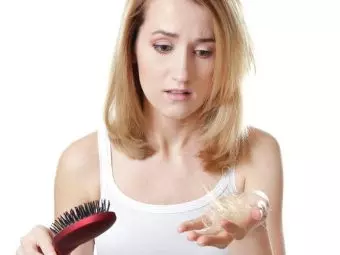 How To Combat Thyroid Induced Hair Loss Using Home Remedies
How To Combat Thyroid Induced Hair Loss Using Home Remedies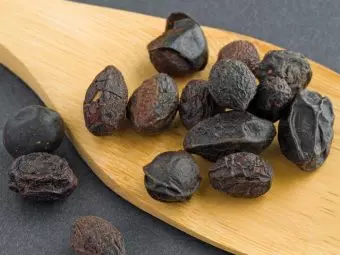 Saw Palmetto For Hair Loss: Side Effects And Precautions
Saw Palmetto For Hair Loss: Side Effects And Precautions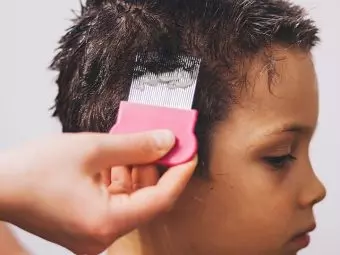 What Are The Main Causes Of Hair Loss In Children?
What Are The Main Causes Of Hair Loss In Children?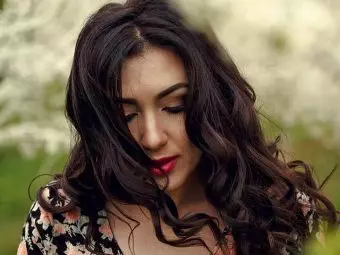 7 Best Yoga Poses That Boost Hair Growth And Thickness
7 Best Yoga Poses That Boost Hair Growth And Thickness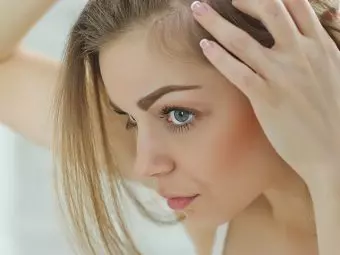 8 Simple Ways To Treat Hair Loss At The Temples
8 Simple Ways To Treat Hair Loss At The Temples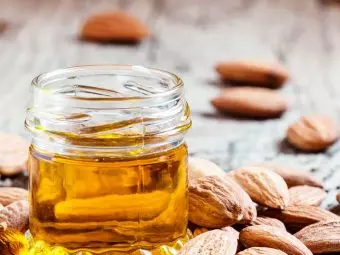 How To Use Almond Oil To Help Control Hair Loss
How To Use Almond Oil To Help Control Hair Loss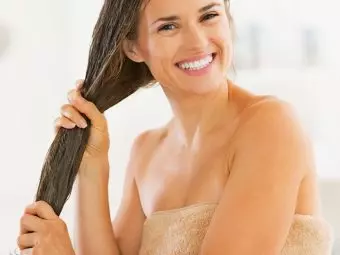 15 Effective Hair Masks To Treat Hair Loss
15 Effective Hair Masks To Treat Hair Loss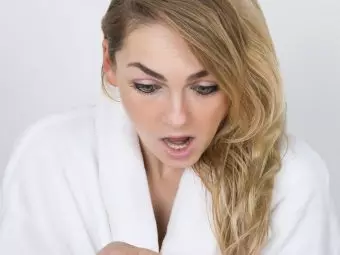 6 Best Vitamins For Hair Fall Control – Do They Really Work?
6 Best Vitamins For Hair Fall Control – Do They Really Work?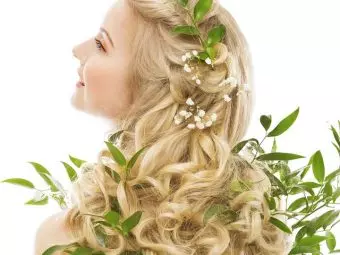 20 Herbs For Hair Loss That Stimulate Hair Growth
20 Herbs For Hair Loss That Stimulate Hair Growth